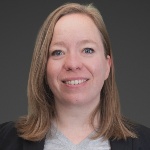The Quality Development Department of the University of Stuttgart supports the digit@L project with quality assurance. Quality assurance in a project ensures that the project results meet the defined standards and requirements. It comprises a series of planned and systematic activities to control and continuously improve the quality of processes and outputs throughout the project cycle.
How can the project results be evaluated? What instruments already exist?
- Quality development in the project is based on the established Stuttgart evaluation model.
- Module surveys and course surveys are particularly suitable for project measures
- The annual student survey makes it possible to gather students' perspectives on various topics related to the digit@L project. Below is an example from the student survey.
How can project results that require more customised instruments be evaluated?
The diversity of the project measures sometimes requires specific approaches to the individual evaluations of the project outputs.
The Quality Development Unit advises project participants individually on the evaluation of their measures, provides support during implementation and helps with the interpretation of evaluation results.
Evaluation instruments can be flexibly adapted to the progress of the measure or a continuous evaluation process can be developed in co-operation. For example, a combination of qualitative focus group interviews and quantitative surveys has proven successful in evaluating the extensive video production in the project.
How else is the Quality Development Unit involved in the project?
- Key data portal: The key data portal is both a result of the digit@L project and a quality development tool that can measure the long-term effects of the project measures. Visit our website on the key data portal for more information.
- Employee survey: The annual survey gives project participants the opportunity to provide anonymous feedback and express their wishes for the further course of the project. The survey is carried out in the middle of each winter semester.
- Overall evaluation: In addition to the evaluation of individual measures, a summative overall evaluation of the project is carried out. This involves collating, analysing and interpreting the data collected in order to gain an understanding of the project results and assess the effectiveness of the overall project.
Call for action
Would you like to evaluate your project measure in the digit@L project, do you need support in selecting the right evaluation instruments, the implementation or the interpretation of the results? Feel free to contact the Quality Development Unit!
Example from the 2023 student survey: Necessity of programming languages
As part of our annual student survey, we asked students in the summer semester of 2023 about the necessity of certain software and software environments for their studies. They were presented with various categories, including data analysis software, design software and programming languages such as Python, Matlab or Java. The results, which you can view below, are broken down by faculty and by the academic degree they are aiming for (Bachelor's or Master's).
Chart Necessity of certain software and software environments for studying
Natural sciences and engineering
In faculties 5, 6 and 8 in particular, mastery of programming languages is seen as almost essential. In Faculty 3, 41% of Bachelor's students and 68% of Master's students also state that they need programming languages.
Humanities, economics and social sciences
In contrast, programming skills only play a subordinate role in Bachelor's degree programmes in Faculty 9, while 29% of respondents in the Master's degree programme already emphasise their necessity. Faculty 10 shows a more even trend: around 30% of students on both Bachelor's and Master's programmes require programming languages.
Notes
The varying number of respondents in the individual groups (indicated by n) reflects the scope of our survey. The percentage figures refer to this sample size. This means, for example, that in Faculty 6, 93% of respondents at Bachelor level, i.e. 303 out of 316 students, confirm the relevance of programming languages.
The student survey does not include all faculties every year. Faculties 1, 2, 4 and 7 will be surveyed again in the next cycle, i.e. in the summer semester of 2024.
Summary
These figures show that programming languages are not only relevant in degree programmes with a focus on computer science, but are an important skill in many disciplines. Offers such as the Python self-study course developed in the digit@L project can help to learn these skills outside of the curriculum.
Contact

Nicolas Zörlein
Quality assurance in the digit@L project

Marlene Scherfer
Head of Quality Development




